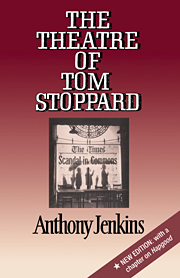Summary
Whatever its problems, Night and Day more than held its own in the West End. Responding to Diana Rigg's elegantly cool Ruth or to the mannered frenzy of Maggie Smith, who succeeded to the part in the second year of the run, audiences came away delighting in a sophistication made all the more challenging by those knotty interludes of undisguised talk; as Stoppard puts it, “one's appeal to an audience is less to do with what one is saying than how one is saying it”. Yet the critics were more leery. Bernard Levin, for whom, after Every Good Boy, “this man could write a comedy about Auschwitz, at which we would sit laughing helplessly until we cried with inextinguishable anger”, found the play “deeply disappointing” and, striking nearer the heart of things, suggested that Stoppard “has put his viewpoint before his drama”. The favourably inclined praised the way that viewpoint could evolve within the limitations of a well-crafted plot: “even for him it is a signal triumph to have related such remote subjects within the discipline of a nuts and bolts naturalistic play” Mixed or lukewarm reviews and enthusiastic queues at the box office have become something of a norm for the later plays, a phenomenon which is less interesting for what it says about the relative perceptiveness of critics and audiences than for the reaction it provokes in Stoppard himself: “I find that people … are divided along [sic] those who congratulate me on getting past the ‘hummingbird’ phase and those who say ‘What are you doing?
- Type
- Chapter
- Information
- The Theatre of Tom Stoppard , pp. 154 - 182Publisher: Cambridge University PressPrint publication year: 1989



